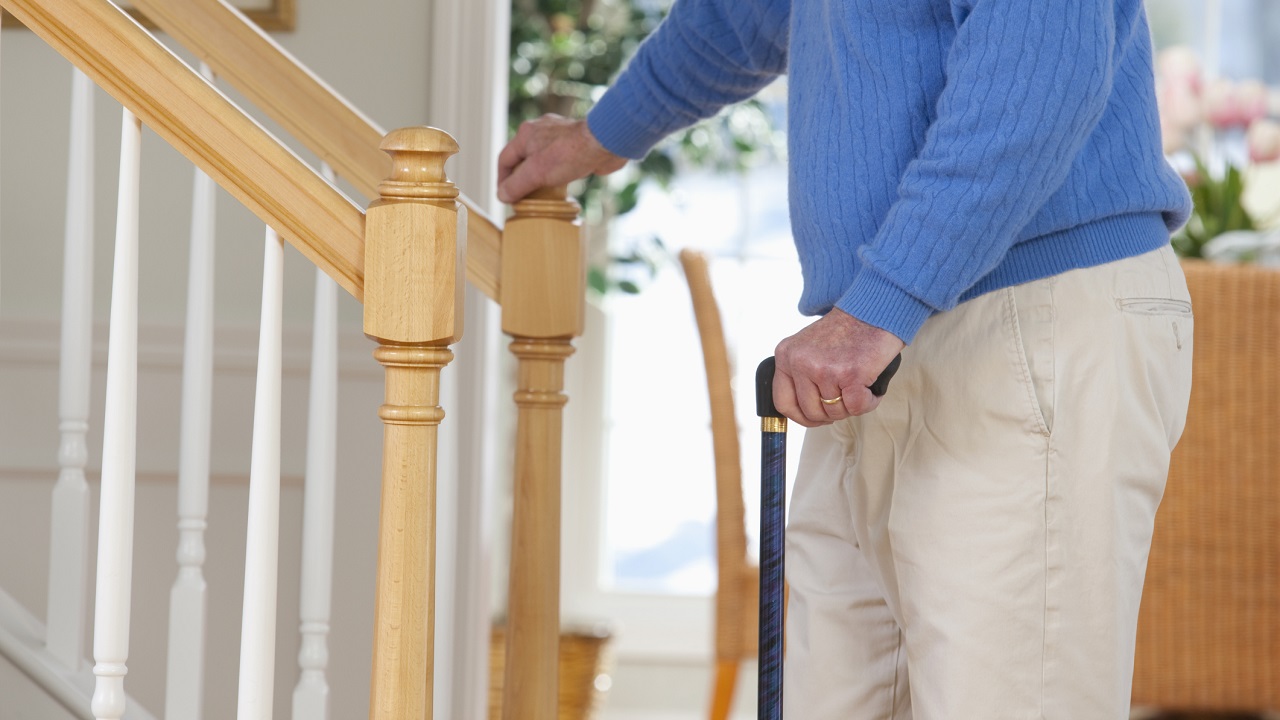Depression is not a normal part of aging, but older adults do tend to experience many common risk factors for developing low mood, such as social isolation, death of loved ones and health problems. However, one contributing cause that is often overlooked is a fear of falling.
Fear of Falling and Post-Fall Syndrome
Fear of falling (FOF) is a central part of post-fall syndrome, a term first coined in a study published in Gerontology. The authors noted that elderly patients who were hospitalized after falling tended to exhibit “remarkable hesitancy and irregularity in their walking attempts,” a “great fear of falling” upon standing, as well as “grabbing and clutching” for nearby objects for extra support.
Seniors’ concerns about recurrent falls are entirely warranted considering fall-related injuries can result in pain, hospitalization, surgery, physical and/or cognitive disability and even death. Furthermore, research shows that falling once doubles one’s likelihood of falling again.
Although post-fall syndrome was initially studied in older adults with a fall history, further investigation has revealed that seniors who have never taken a tumble may also exhibit persistent anxiety about falling. Living in fear is problematic on its own, but the real trouble begins when elders limit their daily activities in an attempt to avoid falling.
Worry About Falling Can Be Debilitating
The psychological trauma associated with even a minor fall often causes older adults to reevaluate their abilities and modify their behavior accordingly. Avoiding hazardous activities and environments is an important part of reducing one’s fall risk, but an intense and unrealistic fear of falling can trigger a loss of confidence and a noticeable deviation from daily routines. One study of the relationship between fear of falling and functional abilities in adults over 71 years of age found that 19 percent of participants acknowledged avoiding activities out of fear.
Fear can hold seniors back from leaving their homes, socializing, and staying active no matter how much they are encouraged. Shying away from even basic, low-risk tasks erodes an elder’s independence, sense of purpose and quality of life. Self-isolating and leading a more sedentary lifestyle can lead to depression and a cycle of further withdrawal and inactivity.
In addition to depression, choosing not to participate in life has serious physical consequences. Elders who consciously or unconsciously “slow down” to protect their health actually wind up increasing their chances of falling. The saying “use it or lose it” applies here. When fears of falling prevent older adults from performing activities of daily living (e.g., bathing, dressing, walking) and instrumental activities of daily living (e.g., cooking, running errands, housekeeping tasks), it leaves them vulnerable to new and worsening gait and balance disorders. Purposely limiting mobility often results in muscle weakness, poor balance and coordination, weight gain, bone loss, and joint pain and stiffness, which can all contribute to a fall.
Overcoming Fear of Falling and Depression
Families experience growing concern when they see their aging loved ones isolating themselves and not wanting to participate in activities they once loved. Many times an obvious reason for this change does not present itself, but it should be addressed immediately. Even if fear of falling is not the culprit, marked fluctuations in a senior’s mood, behavior and/or functional abilities are cause for concern and may be due to other serious issues, such as a urinary tract infection (UTI), adverse medication reactions or dementia.
Since falls and fear may not seem directly linked to depression, it often goes unrecognized. To complicate matters further, seniors frequently downplay or fail to mention accidents they’ve had when speaking with family members and physicians. It’s important for family caregivers to strive for an open dialogue with their care recipients about falls, fears, depression, long-term care goals, etc. Ensuring the entire care team is well informed and on the same page will help you all address the elder’s needs and concerns as quickly and efficiently as possible.
Creating a falls prevention program is the best way to assuage a senior’s fears, restore their confidence, improve safety inside and outside their home, stave off depression, prevent isolation, and extend their independence. Start by researching fall prevention tips for seniors and learning about signs of depression in the elderly. Your loved one’s doctor can also provide personalized recommendations for reducing their fall risk and improving their mood.
